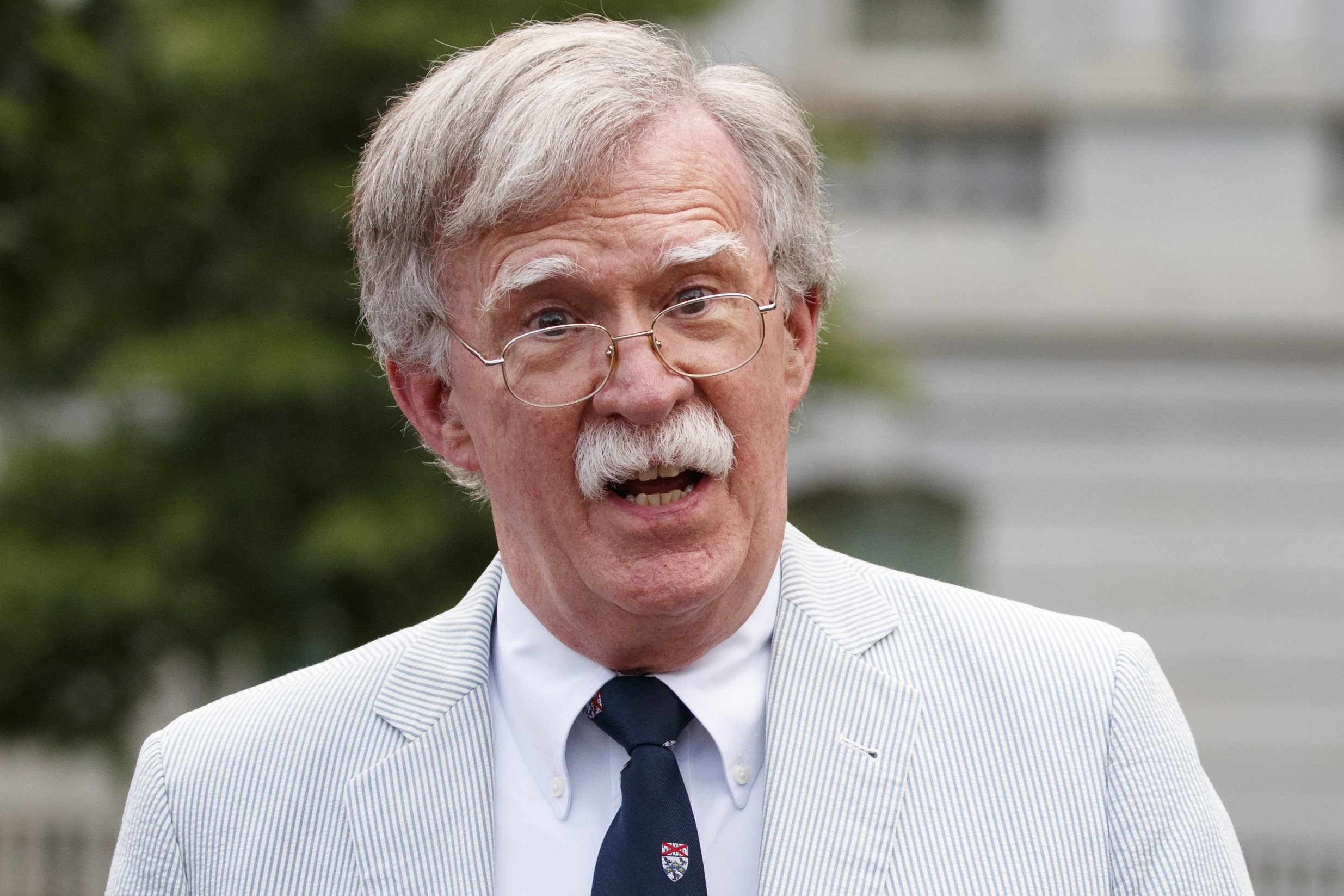US interested in independent Iraqi Kurdistan, Iraq has failed: Bolton
This is a reminder of when the Bush administration started supporting the Kurdistan Democratic Party (KDP), the Patriotic Union of Kurdistan (PUK), and the Supreme Council for the Islamic Revolution in Iraq (SCIRI) immediately after invading Iraq.
-

Former National Security Advisor John Bolton at the White House in Washington, DC, in July 2019. (AP)
During an interview with the Kurdish Rudaw news agency on Saturday, former US National Security Advisor John Bolton expressed interest, on behalf of the US, in an independent Iraqi Kurdistan.
“I think an independent Kurdistan is in the interest of the United States. It’s hard to define exactly what its boundaries would be. But I think the state of Iraq has failed. I think certainly Kurdish territories in Iraq could be the basis of a new independent country," he said.
This echoes when the Bush administration started supporting the Kurdistan Democratic Party (KDP) led by Masoud Barzani, the Patriotic Union of Kurdistan (PUK), and the Supreme Council for the Islamic Revolution in Iraq (SCIRI) - immediately upon invading Iraq.
The KDP and the PUK are the uncontested ruling parties of Iraqi Kurdistan, and have been so since its inception as an autonomous region in the 1990s. The governorates of Dohuk and Erbil fall under the rule of the KDP, while Sulaymaniyah is controlled by the PUK - as both parties are responsible to set the policy of each of their controlled areas.
The US supported the three parties because they created three ethnically different regions in Iraq which could weaken the Iraqi government: A Kurdish region in the north, a Shia region in Baghdad and the south, and a Sunni region in the West.
'Borders are drawn with blood'
The Kurdish parties inserted Article 140 into the new Iraqi constitution in 2005 to annex Kirkuk - home to massive oil reserves and so-called disputed territories including Sinjar. The effort failed two years later, but when ISIS invaded Mosul, the Kurds got a second chance at trying.
As soon as the Iraqi army withdrew, the Kurdish Peshmerga forces tried to take Kirkuk, which increased their oil reserves from 4 billion to 13 billion barrels and helped them obtain the intrinsic base needed for Kurdistan to become an independent state.
Read next: US subtly warns Iraq after ban on Iraqi Kurdistan oil, gas exports
However, French academic and Iraq expert Pierre-Jean Luizard sees the Kurdish annexation as non-accidental, saying Kurdish leader Masoud Barzani made a pact with ISIS to divide the territory.
Shortly afterward, Peshmerga forces withdrew from Sinjar and the Nineveh Plain, which gave space for ISIS to invade and thus massacre thousands of Yazidis in Sinjar and capture thousands of women and girls as sex slaves.
Masoud Barzani then declared that “Article 140 has been applied. The borders are drawn with blood!”
Read more: Exclusive: Terrorists' positions totally destroyed in Kurdistan region
The oil in Kirkuk immediately started being sold to Turkey to then be transferred to Israeli buyers to export to "Israel". By the time 2015 rolled around, Kurdish oil accounted for 77% of "Israel’s" oil imports.
Here's where the US actively comes in. A referendum for the independence of Kurdistan was announced in 2017 by Barzani, which Bolton showed strong support for and which Israeli PM Benjamin Netanyahu directly supported in turn.
Regarding the oil exports, just this week, exports of nearly 400,000 barrels per day to Turkey have been stopped due to a ruling by an international court of arbitration that it violated a bilateral treaty. As a result, that impeded the goal of the Kurdish factions in obtaining autonomous control of Iraqi Kurdistan's oil sector and raised doubts about whether oil companies in Kurdistan would be able to continue producing and selling oil unless an agreement with Baghdad is reached moving forward.

 4 Min Read
4 Min Read








